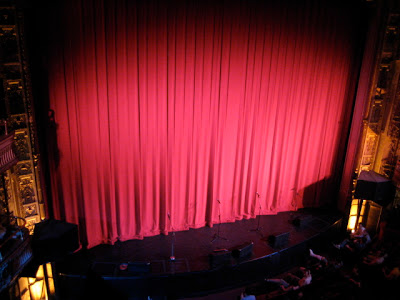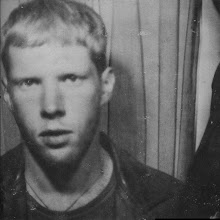Jerboa has joined your party.
28.5.09
EGYPTIAN JERBOA
Posted by
P.J.S.
at
10:05
1 comments
![]()
Labels: animals, cryptozoology, exploration, video
PYGMY JERBOA
Jerboa makes his home in the middle east. He is nocturnal and has incredible hopping powers.
Posted by
P.J.S.
at
10:00
2
comments
![]()
Labels: animals, cryptozoology, exploration, video
25.5.09
BONNIE
Posted by
P.J.S.
at
20:50
0
comments
![]()
Labels: happenings, joy, modern music, new york city, video
23.5.09
VHS BETA
Posted by
P.J.S.
at
22:19
0
comments
![]()
Labels: contemporary art, drawing, ethnography, painting, video
22.5.09
bad data
Posted by
P.J.S.
at
01:25
0
comments
![]()
Labels: deutschland, modern music, science, space, thought, video
20.5.09
DELIRIUM OF ALFRED RUSSEL WALLACE

The objective of the best art and science is not to strip nature of wonder but to enhance it.
-Mark Dion
Mark Dion's piece on Alfred Russel Wallace's malaria delirium which led to his inspiration for survival of the fittest.
Posted by
P.J.S.
at
14:38
0
comments
![]()
Labels: animals, catastrophe, contemporary art, ecology, exploration, taxidermy
19.5.09
THE UNIVERSE AND EVERYTHING
Posted by
P.J.S.
at
11:12
0
comments
![]()
Labels: contemporary art, documentary, film, science, space, video
17.5.09
ONE CANDLE

Gerhard Richter and Nam June Paik.
from portikus.de
NAM JUNE PAIK
ONE CANDLE/EINE KERZE
01/21/89 - 03/12/89
"Nam June Paik (born in 1932 in Seoul/South Korea, living in New York) counts as the founding father of video art. While he is not the only one who was preoccupied with television in the early sixties, no one else has contributed so much to the development to an independent art form than he has.
At Portikus, Paik shows an installation centred around a single candle. Paik is known to a broader audience usually through large walls of monitors. He has developed his installations in all conceivable directions. Objects, closed-circuit installations, or multi-monitor installations: in each field, large work complexes have been created that are interconnected organically. Ideas and materials are subject to his principle of recycling. This is especially evident with his video tapes; although they are produced with state-of-the-art editing computers, they often include material from his earliest experiments.
Next to the closed-circuit installations that demonstrate reproduction mechanisms in a tautological way and raise the philosophical question of reality, he has, in the eighties, mainly created large-surface multi-monitor installations using several video tapes in which the different images, to a great extent abstract on account of the way they are edited, fit together to a super-matrix having a kaleidoscopic effect. The largest of these installations, with more than 1000 monitors, is erected at the National Museum of Modern Art in Seoul on occasion of the Olympics 1988. In addition to these large-scale projects, Paik has still always created stringent, minimal works referring back to the sixties and seventies, like "One Candle" (1989) for example.
This is one of the few installations using video projection: a single candle is filmed by two cameras and projected to the walls by several projectors in the television colours blue, red, and green. The room is filled with live, overlapping candles appearing in different colour-mixtures. Light is not only a prerequisites of video art - that's something Paik also conveys."
Posted by
P.J.S.
at
11:47
0
comments
![]()
Labels: art history, contemporary art, film, painting, video
16.5.09
13.5.09
MAY/JUNE/JULY



Hi, I haven't blogged in a while. I've been looking for an apartment. It has made me into a cauldron of stress. Hopefully, I will sign a lease tonight. Cross your fingers.
Meanwhile, a lot of people seem to dislike Miranda July. People leave her negative comments on her website. I don't know why. I think she is great. Her work is the opposite of pretentious. It's very human. Art that everyone can enjoy.
The Hallway from The Hallway on Vimeo.
Posted by
P.J.S.
at
12:04
0
comments
![]()
Labels: contemporary art, drawing, japan, joy, thought





